Worried about extra weight? Nutritionists advise measuring calories to maintain a healthy weight. Poor food choices during dieting can prevent weight loss. Some people try to lose weight by skipping meals, but this is not a healthy approach. Instead, eat and drink by measuring calories. Let’s find out which foods are low in calories.
Low Calorie Foods
Today, we will learn about low calorie foods. These foods are not only low in calories but also tasty, nutritious, energizing, and satisfying. They include berries, broccoli, quinoa, eggs, and avocado.
Low Calorie Foods List
Many people try to lose weight by not eating, but that approach is unhealthy. It is important to eat and drink while measuring calories. Let’s explore some low calorie foods.
Watermelon: This fruit is a great addition to your weight loss diet. It contains only 30 calories per 100 grams, and it’s made up of 92% water. Regular consumption of watermelon also helps with dehydration.
Celery: Whether in salads or soups, celery is highly popular. It contains only 16 calories per 100 grams. You can cook it with seasonal vegetables. Celery is rich in vitamins B1, B2, and B3, which help prevent kidney disease. It has numerous benefits for weight loss and maintaining blood volume.
Carrots: Eating 100 grams of carrots fulfills your daily requirement of vitamin A. A raw carrot salad boosts immunity, and you get just 50 calories from 120 grams of carrots. This makes carrots an excellent food for fat loss.
Cucumber: Cucumber tops the list of low calorie foods for weight loss. It’s often recommended for conditions like obesity and diabetes, as it contains only 16 calories per 100 grams.
Tomatoes: Tomatoes are rich in vitamins and contain only 18 calories per 100 grams. They are also high in lycopene, which helps prevent cancer and keeps the heart healthy. Tomatoes are a good source of both soluble and insoluble fiber, which aids weight loss.
Berries: Berries such as raspberries, blueberries, blackberries, and strawberries are excellent low calorie, filling fruit options. Due to their high fiber and water content, they are lower in natural sugars than many other fruits. They are also rich in vitamins, antioxidants, and anti-inflammatory properties.
Broccoli: High in fiber and low in calories, broccoli is a nutrient powerhouse. It’s an anti-cancer superfood and contains vitamins A, C, E, and K, along with iron, calcium, potassium, magnesium, selenium, and folate.
Quinoa: Quinoa is the only whole grain that’s a complete protein, also providing high levels of iron, magnesium, phosphorus, potassium, and zinc. A half cup of cooked quinoa contains just 100 calories, making it a great high-protein base for grain and salad bowls.
Eggs: It is a great source of both protein and healthy fat. They are a superfood and an easy, nutritious breakfast option that is also low in calories.
Avocado: Though high in carbohydrates and low in fat, avocados are a great low calorie fruit option. Add them to your morning salad or snack breaks. Avocados are high in fiber and contain potassium, which helps reduce bloating. Plus, they taste great!
Oats: Oats are packed with fiber and protein, and a 1/2 cup contains 148 calories. Eating oats keeps you full for longer and helps control blood sugar levels. Plus, you don’t have to worry about gaining weight by eating oats.
Soup: Hot soup is great for your body and typically low in calories. Eating vegetable or chicken soup can help fight off cold and cough, provide energy, and prevent nutritional deficiencies.
Chia Seeds: Do you drink chia seed water in the morning? You can also eat chia pudding for breakfast. In addition to being low in calories, chia seeds are rich in fiber and antioxidants. Their soluble fiber supports digestive health.
Greek Yogurt: One of the best sources of protein is Greek yogurt. A 100-gram serving contains 59 calories and 10 grams of protein. This food keeps you full longer and aids weight loss by improving metabolism.
When dieting, we often feel hungry and crave hot foods. To avoid this, control your appetite and opt for low calorie foods. Fortunately, these foods are tasty, nutritious, energizing, and satisfying.
Bottom Line
Being overweight is harmful to your health. Excess body weight not only affects your appearance but also increases the risk of diseases like heart problems, diabetes, and high blood pressure. Diet and exercise are the most effective ways to reduce fat. Incorporating low calorie foods into your regular diet is essential. Nutritionists often recommend these foods for weight loss because, when calorie intake is low, the body starts using stored fat for energy, leading to fat loss.


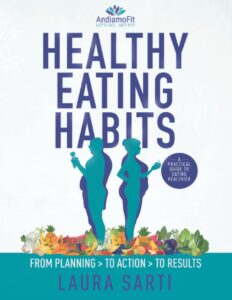
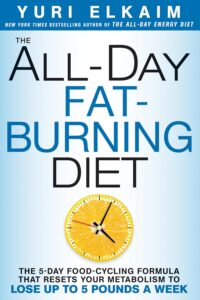

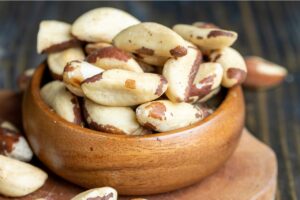

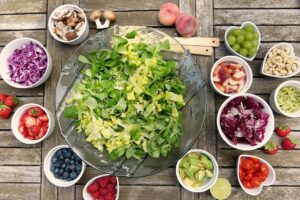
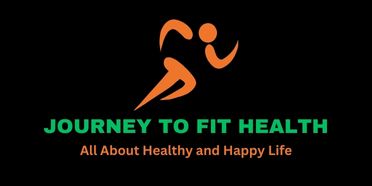
Pingback: Low Calorie Breakfast & Snacks to Keep Weight Under Control